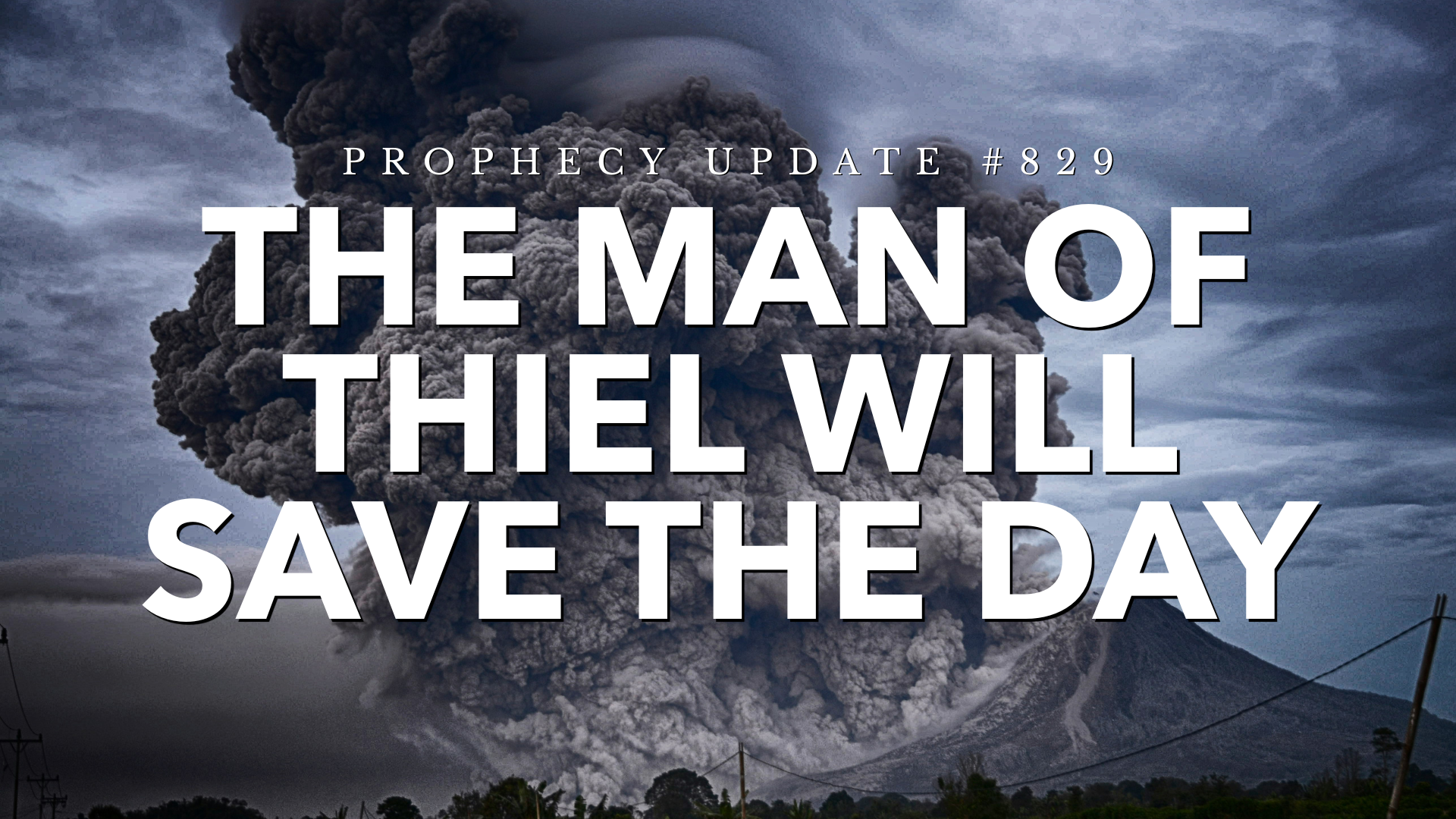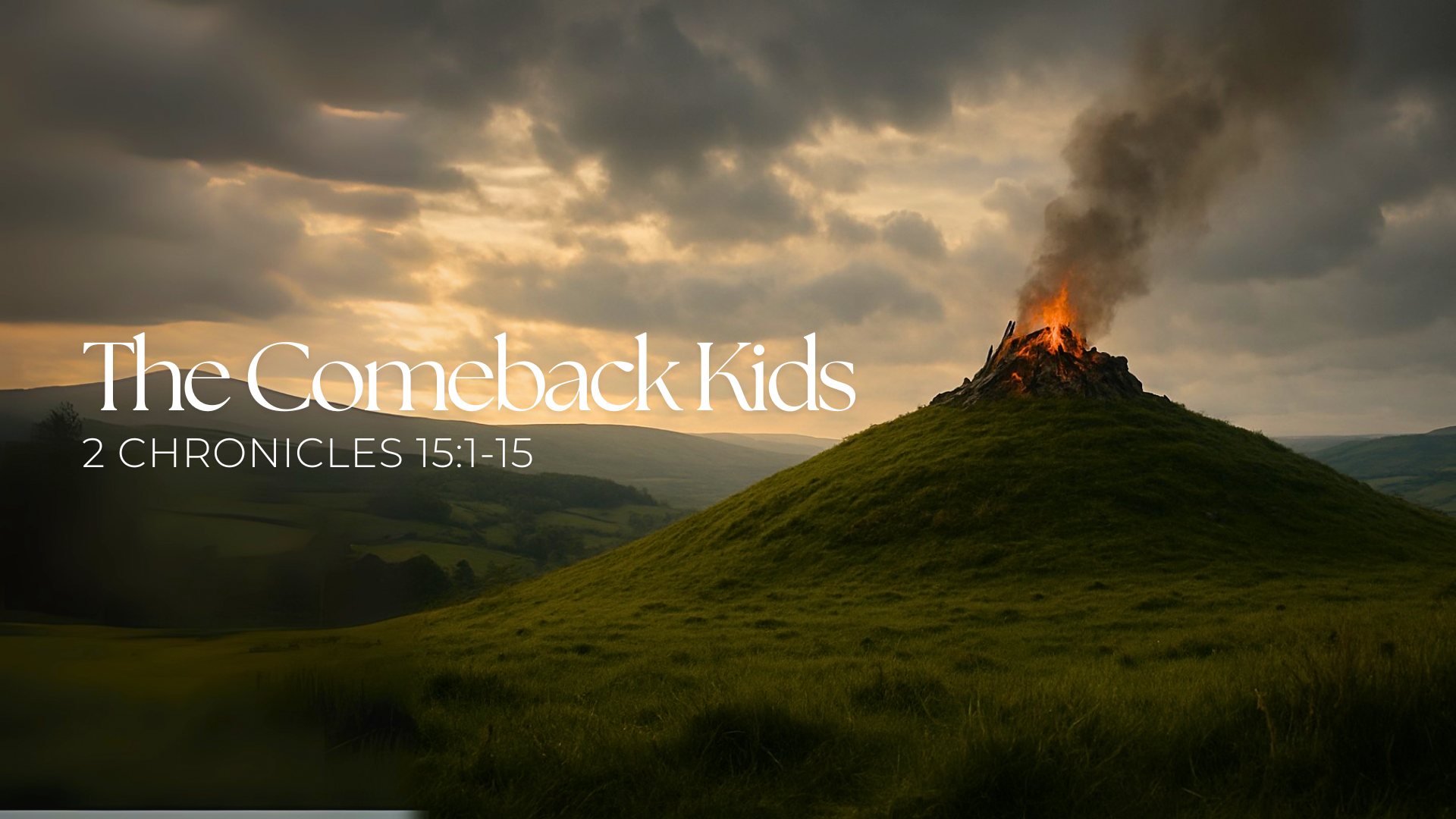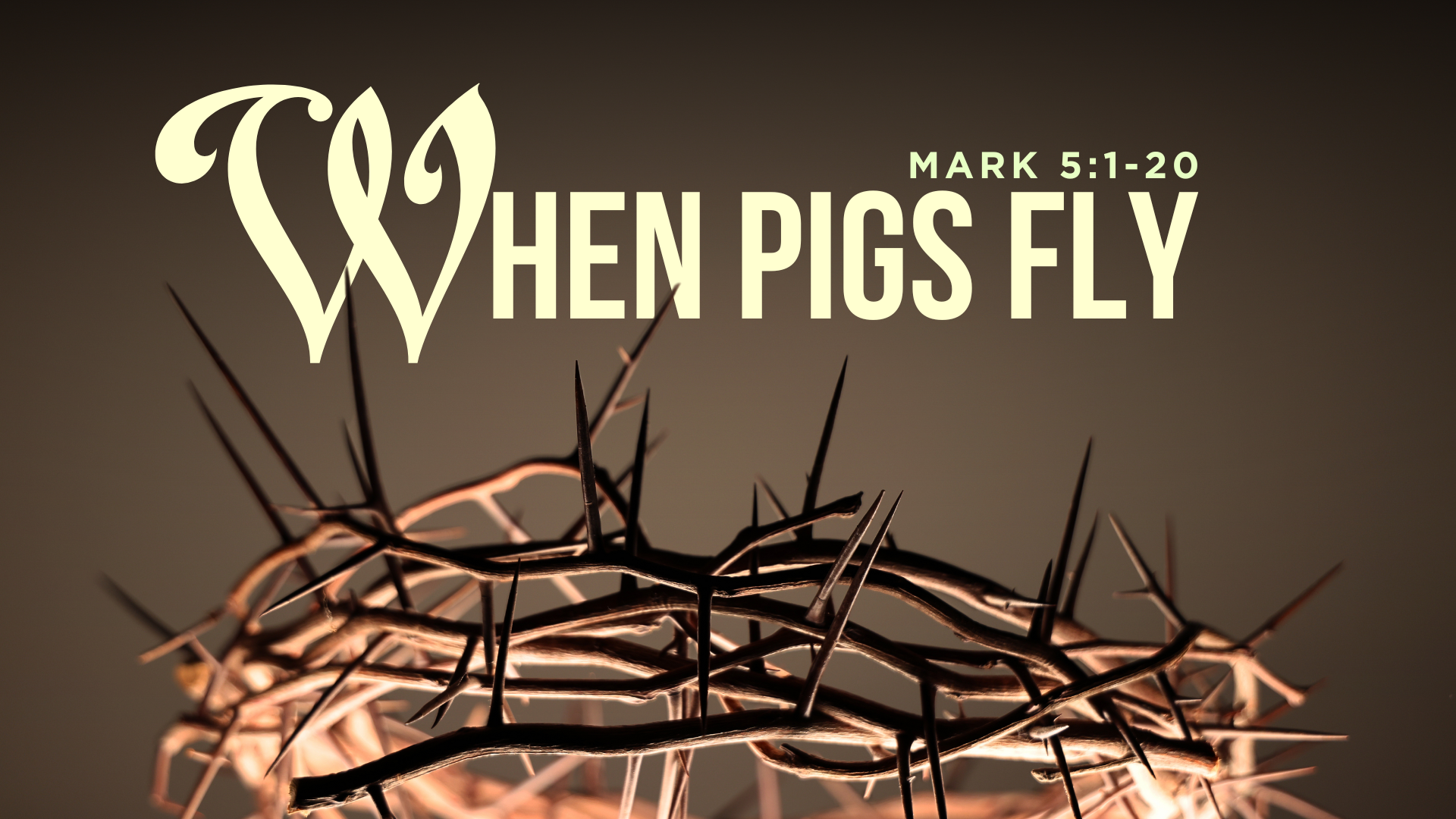
The Gift They Keep On Leaving (Mark 6:1-6)
Would you reject a gift from an emperor? Usually that wouldn’t be a wise decision. On the other hand, if you once had a close relationship with him, perhaps you’d feel freer to spurn his offer.
In 1812, Napoleon Bonaparte sent his ex-wife, Josephine 72 custom designed, porcelain plates, along with an elaborate centerpiece. It was a divorce present. The well of each plate depicted a scene from Egypt, drawn by a famed French artist. Altogether, the service would cost more than $100,000 today.[1]
But Josephine was not happy with her gift – even though she had been part of the design process! She would not accept the plates when they showed up. She said they were “too severe.” And so, sent them back to the factory. And, about six years later, they were passed on to the Dukes of Wellington, who kept them in the family for the next 160 years.
In our text, the King of kings brings a priceless gift to His hometown. The gift is Himself – His presence, His truth, His power. He meant to shower this community with insight and miracles and direction for living. He brought the secrets of the coming Kingdom for any who would receive these precious, life-changing gifts.
The people take a look and decide they’re not interested. Send it back. They not only reject what Jesus offers, but they reject Him as a gift-giver. And so, His presence, His teaching, and His power pass on to others, and the people of Nazareth remain spiritually impoverished.
It wasn’t the first time Jesus tried to deliver this gift to them. But, even on this second chance, they decide to pass. And the Lord is amazed at their unwillingness.
Jesus wants to give things to you. He wants to give you His Word as a light for your feet and a lamp for your path. He wants to give you life more abundantly. He wants to heal your heart and transform your present, give you an eternal future. He wants to give you specific gifts so you can glorify Him and bless others. He wants to properly diagnose problems and flaws and vulnerabilities in your heart and mind, in my heart and mind. These are gifts from a tender and loving Savior.
But if we think we have nothing to hear from Him – that we already know what we need to know – that we’ve got our life situation under control without need of His involvement, then we will make the same mistake the people of Nazareth made, and we will be all the poorer for it.
Mark 6:1 – He left there and came to his hometown, and his disciples followed him.
Nazareth is about 20 miles south of Capernaum.[2] I think most of us would assume, “Great, Jesus gets to go home and see friends and family. Who would be happier to see Him now that the whole nation is talking about how He’s healing people and casting out demons and raising the dead?”
But understand, Jesus’ trips home were not usually very pleasant experiences. The last time we saw anyone from Jesus’ family, they were accusing Him of insanity.[3] Worse than that, the last time Jesus visited His hometown, the people literally tried to kill Him.[4] Not just that they talked about it, they pushed Him to the edge of a cliff and fully intended on throwing Him over, but He passed through the mob.
I hope no one has ever tried to kill you. If someone did, I wouldn’t expect you to go over to their house tonight for dinner. And yet, this is our God. The God Who gives chance after chance to sinners. A Savior Who says, “Father, forgive them, they know not what they do.”[5]
Our hearts and minds were hostile to God – at war with Him.[6] And He came not only with an offer of peace, but with an invitation to join His family. He came from heaven to earth. It could’ve been the other way around. And if it was, there would be no hope for any of us. But instead, there is hope for all of us, because God came at just the right time to rescue us.
Mark 6:2-3 – 2 When the Sabbath came, he began to teach in the synagogue, and many who heard him were astonished. “Where did this man get these things?” they said. “What is this wisdom that has been given to him, and how are these miracles performed by his hands? 3 Isn’t this the carpenter, the son of Mary, and the brother of James, Joses, Judas, and Simon? And aren’t his sisters here with us?” So they were offended by him.
We don’t know a lot about Jesus’ life before the age of 30. We learn here that He had siblings and that He had been a carpenter. The word used of His profession is tekton. That was someone who predominately worked with wood,[7] but it has a wider connotation than what we might think of when we hear the word, ‘carpenter.’ One source writes, “It could refer to any kind of craftsman: mason, smith, shipbuilder, sculptor, and even physician.”[8]
As a carpenter in Nazareth, Jesus would’ve been the Person making ploughs and yokes for the farmers in town.[9]
What a wonderful image it is to think of Jesus working in these ways. He still does these kinds of work in our lives, today. He’s not only the Architect of our lives, He works as a Builder day by day. He’s an Artisan – a Craftsman. He works with living stones. He sculpts our lives. But He also works with us like a smith with precious metals. He refines us in His smelt, bringing us forth as pure gold. He’s our Great Physician. He makes a yoke for us to take and wear and plough with Him – a yoke that is easy and whose burden is light. The Carpenter Who began all this good work in you will be faithful to complete it according to His power, His design, His artistry, His ability.
We also see here that Jesus had at least six siblings. Now, our Catholic brothers and sisters often try to refute this idea. Catholic doctrine teaches Mary was a perpetual virgin. And so, Catholic apologists will say the people named here are either Jesus’ cousins, or perhaps they were children of Joseph from a previous marriage.
Couple of problems with those arguments. First, linguists point out that the Greek term for “brother” here seldom, if ever, refers to cousins either in the New Testament or external Greek literature.[10] Both 1 Corinthians and Galatians reference Jesus having brothers.
As to these being Joseph’s kids from another marriage, that’s still a problem. Because that would mean Jesus was not the firstborn male in Joseph’s house, which creates an issue since the firstborn would be the heir to David’s throne.
We don’t know anything of Jesus’ sisters or two of these brothers. His brother James would later become the leader of the church in Jerusalem and be the author of the book of James in your Bible. Judas would become the author of Jude.[11] Other than that, we don’t know much.
But here’s Jesus, in the synagogue of Nazareth, and after He’s done teaching, Mark tells us the people were astonished. They were knocked out by what they heard.[12] But rather than falling down in worship or devoting themselves to follow Him, they were offended at Him. The word is scandalized.[13] They cease believing in what they had seen and heard.[14]
Why? well, as one commentator put it, they know both too much and too little about Him.[15] They think they know everything they need to know about Him because they watched Him grow up, because they knew His family, because even they thought nothing good could come out of Nazareth. So whether it was prejudice or jealousy or pride or simple “I’m too good to let this Kid from the block tell me something” attitude, they stumbled over Him.[16]
People still trip over Jesus, even though they didn’t grow up with Him. Paul referenced the prophecy of Isaiah that says some people will stumble over the Lord, but the one who believes on Him will not be put to shame.[17]
We cannot allow ourselves to settle into a mentality where we think we know everything about God’s word, about His work in the world, about His commands and callings in our lives. It’s natural for us to come to a Bible book or passage or story that we’ve heard before, maybe many times, and think, “I’ve got it. I already know what I need to know. The warnings in that passage aren’t for me, they’re for someone else. The command given there I’m already doing to it’s fullest extent.”
That sort of mentality is not going to help us. In fact, it’s going to keep us from a greater depth in our knowledge of God and our relationship with Him. God’s word always has something to say to us. There is always some area in every one of our lives where adjustment or calibration or correction is needed. That shouldn’t make us sad, it should make us excited to come to the Lord and allow Him to do the searching and sanctifying work He wants to do.
Sadly, this scene is the last time we’ll see Jesus in a synagogue in the book of Mark. He came to His own, but His own did not receive Him. John says it was because they did not recognize Him.[18]
Oh, they knew He was Mary’s son, James’ brother, but they did not recognize that He was the Messiah and Lord.
Do we recognize Him for Who He is? Do we see Jesus only as a Savior Who takes away our sin – a sort of spiritual garbage Man – or do we also recognize that He is our Sovereign, our Master, our Pilot, and King? A King Who has opinions, intentions, and commands for every aspect of our lives?
Mark 6:4 – 4 Jesus said to them, “A prophet is not without honor except in his hometown, among his relatives, and in his household.”
This was a well-known proverb. It has parallels in both Hebrew and Greek literature.[19] What’s sad is that they admitted Jesus’ teaching was unlike anything they ever heard. They acknowledged the miracles. But it didn’t matter. They wouldn’t believe. It wasn’t for lack of evidence. Jesus had all the proof. It wasn’t a question of how could they believe, but would they believe.
And they weren’t just having a hard time coming to grips. The issue was hard hearts. Did you notice how they said, “Isn’t this the son of Mary?” It’s possible that, since Joseph was dead they reference Mary. But that would be unusual. In Israel, even when fathers were dead, the children were typically still called son of the father. Or, it’s probable that they whisper this as a slur against Jesus. The Son of Mary – “No one knows who the father is, after all…”[20]
Mark 6:5 – 5 He was not able to do a miracle there, except that he laid his hands on a few sick people and healed them.
On first read this makes us think that Jesus had some sort of inability. Of course, right after it says He was not able to do a miracle there it goes on to say, “Except these other miracles He did.”
It’s not that His power was limited by them. It’s that His mission was limited because they would not receive the gift He was ready to give. He was ready to change their lives, save their souls and their bodies and their futures. But they said, No. Send it back. We don’t want it.
God will limit His work in our lives according to our response. If we will not exercise faith, if we will not obey, if we will not trust, if we will not submit, then He will not do all that He would like to do in and through us.
We have many Biblical examples. The Israelites wandering in the wilderness. King Saul. Peter told husbands when they refuse to love their wives in a Biblical way, their prayers are hindered. Paul told the Corinthians he had to hold back the message he had for them, a great spiritual message, because they hadn’t matured enough spiritually to handle it.
It is not any weakness or inability in God that causes these things, but that we put up a barrier to Him – a refusal to receive the gifts of His presence, His work, His instruction.
Mark 6:6 – 6 And he was amazed at their unbelief. He was going around the villages teaching.
We’ve seen a lot of shocked people in this book. Usually it’s after Jesus worked a miracle or taught something amazing. This time, it’s the Lord Who is amazed. It’s a reminder of several things: First, that Jesus was both fully God and fully Man. How can He be amazed, meaning He was surprised at how little faith they had? He was fully Man. And second, our God has emotion – real emotion.
We can bring God joy, we can bring God grief. His word reveals how we do each. We should listen intently and act accordingly.
The end of this Nazareth trip was better than the last one, but it’s still just as sad for the people. They make it clear they don’t want Jesus there and so He moves on. And He brings the gifts of His presence and His teaching and His miraculous power to other villages.
Back in Nazareth, their hearts were unchanged by the preaching of the Christ, and so their lives also remained unchanged.
He had said and done all that was necessary for them to believe. But they wouldn’t. And so they couldn’t receive all that Jesus wanted to give them.
We believe. We recognize that Jesus is the Messiah. And we recognize that there is much we need from Him. Praise God that He is the Gift-Giver Who keeps on giving. May the Lord help us to be a people who humbly receive all He wants to give as we walk with Him through life.
| ↑1 | https://en.wikipedia.org/wiki/S%C3%A8vres_Egyptian_Service |
|---|---|
| ↑2 | The NET Bible First Edition Notes |
| ↑3 | Mark 3:21 |
| ↑4 | Luke 4:28-29 |
| ↑5 | Luke 23:34 |
| ↑6 | Romans 8:7 |
| ↑7 | R.T. France The Gospel Of Mark |
| ↑8 | James Brooks The New American Commentary, Vol. 23: Mark |
| ↑9 | Robert Utley The Gospel According To Peter: Mark And I & II Peter |
| ↑10 | Ben Witherington The Gospel Of Mark: A Socio-Rhetorical Commentary |
| ↑11 | Frank Gaebelein, D. A. Carson, Walter Wessel, and Walter Liefeld The Expositor’s Bible Commentary, Volume 8: Matthew, Mark, Luke |
| ↑12 | Witherington |
| ↑13 | A Concise Dictionary of the Words in the Greek Testament and The Hebrew Bible |
| ↑14 | Dictionary of Biblical Languages with Semantic Domains: Greek New Testament |
| ↑15 | Witherington |
| ↑16 | New American Standard Hebrew-Aramaic and Greek Dictionaries |
| ↑17 | Romans 9:33 |
| ↑18 | John 1:10-11 |
| ↑19 | Gaebelein |
| ↑20 | William Lane The Gospel Of Mark |








